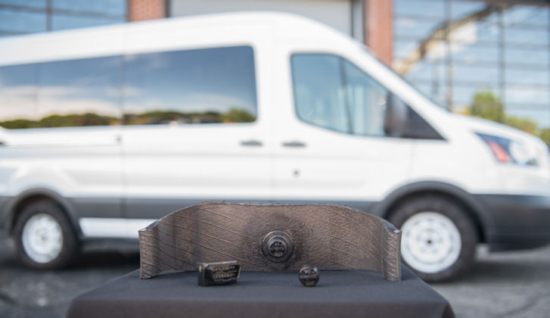Goodyear SightLine: Fleets first to benefit from tyre intelligence technology
 Goodyear SightLine will “help enable seamless, safe and reliable mobility for all vehicles” (Photo: Goodyear)
Goodyear SightLine will “help enable seamless, safe and reliable mobility for all vehicles” (Photo: Goodyear)
The Goodyear Tire & Rubber Company has introduced a tyre intelligence solution for cargo van fleets. Called Goodyear SightLine, the solution will initially be available in Europe and North America, and later this year Goodyear will also offer it to original equipment customers and emerging fleet and mobility providers.
Goodyear SightLine will “help enable seamless, safe and reliable mobility for all vehicles, starting with cargo vans serving the field service, construction and last-mile delivery industries.” It uses sensors with cloud-based algorithms to communicate with fleet operators in real-time.
According to Goodyear, its proprietary predictive maintenance technologies can help address many challenges facing drivers and fleet managers today, including predicting breakdowns, minimising downtime and monitoring tyre pressure and wear for enhanced safety and more cost-efficient mobility.
“Much like smartwatches that monitor vitals like heartrates and oxygen levels, Goodyear SightLine’s tyre intelligence monitors the health of a tyre,” says Chris Helsel, senior vice president, global operations and chief technology officer. “Goodyear SightLine takes the mystery out of understanding tyres and provides proactive mobility insights to communicate when tyres need service or replacement.”
In all new products by 2027
Goodyear has accumulated billions of test miles on tyre solutions powered by Goodyear SightLine through pilot programmes, and with its launch establishes the groundwork for a connected-tyre future in which every tyre provides intelligence. Goodyear has articulated a company goal to have tyre intelligence in all new products by 2027.
Future generations of Goodyear SightLine technology will not only provide feedback on the tyre, but also provide feedback on road conditions, enabling connected, autonomous mobility. Initial testing has shown integrating Goodyear SightLine technology into a vehicle’s control’s system can reduce stopping distance loss by 30 per cent.





Comments